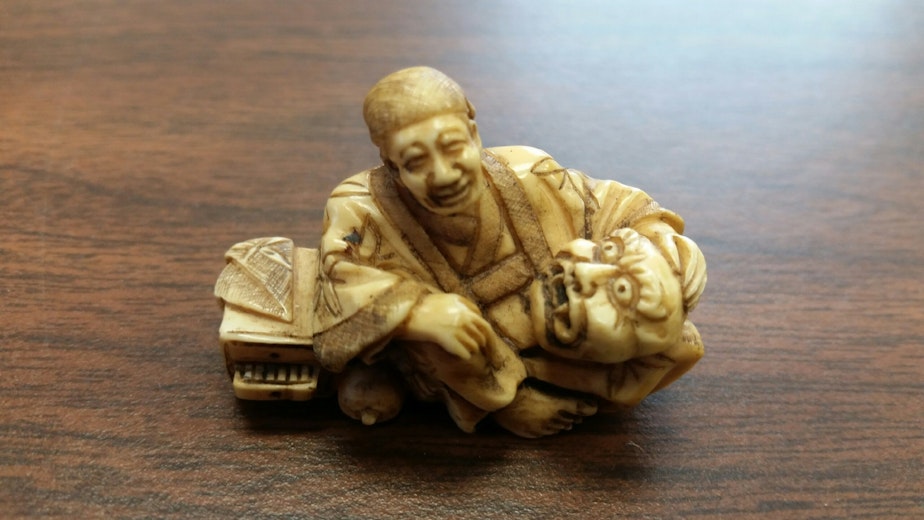Two men accused of selling ivory are first to be charged under wildlife trafficking law

Two people who allegedly placed online ads to sell elephant ivory carvings are the first to be charged under wildlife trafficking laws passed by Pacific Northwest voters a few years ago.
You may remember how billionaire Paul Allen bankrolled ballot measures in Washington state in 2015 (Initiative 1401) and then in Oregon (Measure 100) the following year. Voters in both states by overwhelming margins outlawed the trade or sale of products made from certain endangered animals, such as elephants, tigers, leopards, cheetahs and rhinos.
During the campaigns, there were questions about whether illegal trafficking in African wildlife was really a problem in the Pacific Northwest. Now comes Washington State Attorney General Bob Ferguson with felony charges against two Western Washington men: Donald Rooney of Everett and Yunhua Chen of Seattle were charged Tuesday after separate investigations into carved ivory figures they offered for sale on Craigslist and eBay.
According to the court records, an undercover detective arranged through Craigslist to visit Rooney's mobile home to buy three ivory figurines from him in 2017. That same detective was outbid when she later tried to buy an ivory carving listed by Chen on eBay. With the auction website's help, the authorities identified Chen's item listings and the successful bidders, one of whom forfeited his ivory purchase.
Scientists at the National Fish and Wildlife Forensics Lab in Ashland, Oregon, performed DNA testing on the evidence and confirmed it to be African elephant ivory in all cases.
Sponsored
Rooney did not immediately return a message left on his voicemail. Chen could not be reached for comment. Neither man was physically arrested on Tuesday. They were formally charged via criminal complaints filed by the attorney general in Snohomish and King County Superior Courts. They have been scheduled for separate initial appearances to answer the charges in mid-April.
Each suspect faces a single count of first-degree unlawful trafficking in species threatened with extinction. The maximum penalty for that charge is five years in prison, a $10,000 fine and a $4,000 criminal wildlife penalty paid to the Washington Department of Fish and Wildlife to help fund future enforcement.
It is unusual for the state Attorney General to take the lead on a criminal case, which requires a request from a county prosecutor or the governor. Ferguson said his office took on these prosecutions to put traffickers on notice that selling items made from endangered species will not be tolerated. Sale of African elephant items across state lines is also banned under federal law with a few exceptions.
"The billion-dollar black market trade in endangered species is propelling iconic animals towards extinction," said Woodland Park Zoo President and CEO Alejandro Grajal in a prepared statement. "When Washington voters took a stand against illegal wildlife trafficking by passing I-1401, they provided more than hope — they gave teeth to enforcement measures allowing us to stop this practice in our state. Ending wildlife trafficking here will have ripple effects throughout the entire world and help us save species in the wild."
On Saturday, the zoo in Seattle will host an event in conjunction with WDFW called "Toss the Tusk." Wildlife agents will be on hand to accept unwanted items made from exotic species that would be illegal to barter, trade or sell under the state anti-trafficking law, which took effect in 2016.
Sponsored
According to the event announcement, the Woodland Park Zoo and Washington Department of Fish and Wildlife want to offer a secure and legal way to take those items off people's hands and out of the market for trafficked species. Items will go into the safekeeping of state law enforcement and may later be used in education programs to combat wildlife trafficking.
The voter-approved anti-trafficking laws do not criminalize simple possession of ivory art pieces that were acquired before the ban on that trade took effect. [Copyright 2019 Northwest News Network]

